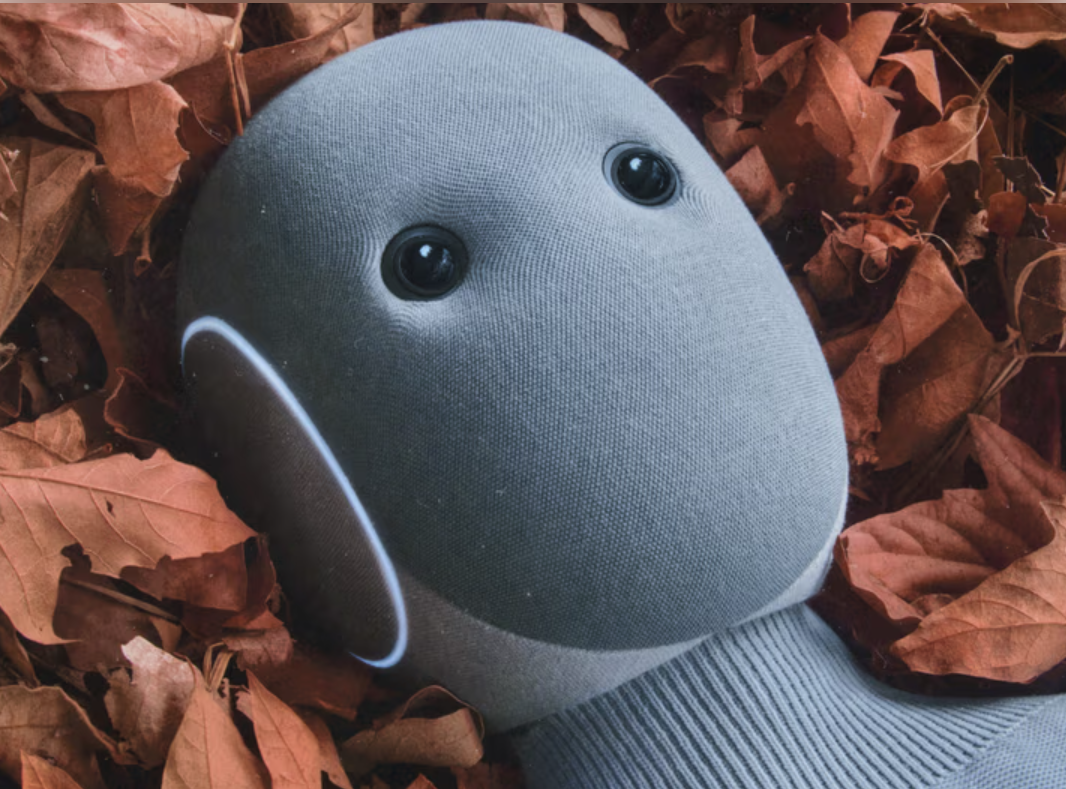NEO Wants to Be Your Roommate: Here's What We Think Of 1X's $20,000 New Robot 'Appliance'
When the future knocks on your door, it might look like a friendly white android carrying your socks
NEO, the latest humanoid robot from Norwegian startup 1X Technologies, is being sold as your next housemate, cleaner and companion all in one. It costs $20,000, or $499 a month if you prefer to subscribe to your domestic bliss. Shipments start in 2026, and if you live outside the United States, you’ll be waiting until 2027.
The company calls it a “humanoid home robot.” Translation: a five-foot-six machine that can fold laundry, fetch things and turn off the lights when you forget. It weighs about 30 kilograms, can lift 150 pounds and purrs along at 22 decibels, which is quieter than a fridge. It runs on a tendon-based system that mimics human muscles, giving it unnervingly natural movements. In the company’s promo video, it glides across a spotless living room like a ballet dancer who just discovered domestic labour.
The pitch
1X isn’t some fringe startup. It’s backed by OpenAI, which gives the project both credibility and a dose of unease. The robot’s brain is powered by a large language model, so it can talk, remember your preferences and theoretically get better at chores over time. 1X says it’s designed to “help with daily life,” which sounds benign until you realise it’s watching, listening and learning as it works.
The company promises you’ll be able to teach NEO new tricks via app updates, which makes it sound like an iPhone with legs. But there’s a catch. For things NEO doesn’t yet know how to do, a human operator can step in remotely and control it. The mode is called “Expert Mode.” In other words, your home robot may occasionally be piloted by an actual person somewhere else on the planet.
TechRadar summed it up neatly: “You can pre-order this charming Neo Home Robot today to do all your chores, but there’s a big catch.” That catch is the social contract you sign when you let a robot, and possibly a remote human, into your home.
The hype and the horror
Reactions online are split between “take my money” and “this is how iRobot starts.” Forbes called NEO “kind of terrifying.” Cinco Días was more generous, praising its quiet operation and noting that users can blur camera feeds, set no-go zones and shut off remote access. That sounds reassuring until you realise that privacy controls have become a selling point for domestic robots.
Scroll through X and you’ll find the usual split-screen of optimism and dread. One user wrote, “Finally, a robot that can actually do chores.” Another countered, “Did you guys not watch iRobot?” Someone else posted a meme of Will Smith holding a gun. The vibe is equal parts fascination and low-level panic.
The mechanics of desire
There’s something seductive about NEO. It looks friendly, even gentle, with rounded features and a neutral palette that screams “trust me.” It’s not the cold metal of Boston Dynamics’ Atlas or Tesla’s Optimus. It’s designed to look huggable, not industrial. But that soft design hides serious hardware. It can lift 150 pounds, carry 55, and manipulate small objects with surprising precision. It remembers conversations, adapts to your tone and reportedly “learns” your routines.
In other words, NEO isn’t just performing chores. It’s learning you. That’s both the point and the problem. As with smart speakers, the line between convenience and surveillance is getting blurry. The difference is that this device moves around your home, sees what you see, and might one day know more about your habits than your partner does.
The price of entry
Then there’s the money. Twenty grand for a robot that still needs human help feels like buying a self-driving car that sometimes calls a driver to take over. E24 calculated the Norwegian price at about 219,000 kroner, which cements NEO as a luxury appliance, not a household staple. The $499 monthly subscription is pitched as an easier way in, but that still puts it firmly in “early adopter with disposable income” territory.
So what do you get for your investment? In videos, NEO folds clothes, tidies a living room, and turns off lights. It doesn’t cook or wash dishes yet, and it definitely won’t deal with your toddler’s Lego minefield. The demos are all in minimalist apartments that look like Apple Stores with sofas. Real homes are chaos. The unanswered question is how NEO handles that chaos when you’re not watching.
The trust problem
Privacy is the main sticking point. If you activate Expert Mode, a real person could be seeing through the robot’s cameras. Cinco Días reports that the user can monitor and revoke access, and all data is encrypted. Still, you’re letting an external operator wander your living room, even if only digitally. The company insists that it is all consent-based, but the unease is built in. You can disable the feature entirely, but then the robot learns slower. It’s the usual trade-off: convenience versus control.
If you’re comfortable sharing your home with an always-connected AI that occasionally phones a friend, NEO could be a marvel. If you’re not, it’s a hard sell.
The reality check
NEO isn’t magic. It’s a prototype dressed up as a lifestyle product. It can do specific, structured tasks, but real autonomy in a messy house remains science fiction. The videos show a calm, uncluttered environment because that’s where robots thrive. Drop it into a teenager’s bedroom and the experiment might end in existential despair.
That said, what 1X is doing is serious engineering. This is one of the few robots that can walk, balance, see, and manipulate objects in the same package. It’s a long way from a Roomba or Alexa. The ambition is enormous. But ambition is easy. Consistency is the hard part.
The emotional test
There’s also the human factor. NEO looks at you, talks to you, remembers you. People already project feelings onto smart speakers. Add a face and limbs, and things get weird. What happens when it apologises for dropping your coffee? What happens when it thanks you for turning it on? Machines that act human trigger emotions we’re not built to manage.
If NEO works, it could feel like help. If it glitches, it could feel like betrayal. Either way, it will force people to decide whether they’re ready to live with something that blurs the line between appliance and presence.
The bottom line
NEO is bold, strange and slightly unnerving. It’s the kind of gadget Wired readers dream about and secretly fear. It costs too much, does too little, and yet somehow feels like a glimpse of the inevitable. For early adopters, it’s a ticket to the future. For everyone else, it’s a fascinating warning shot from the edge of domestic AI.
You don’t have to buy one to feel what it represents. NEO isn’t just a robot. It’s a mirror, reflecting our willingness to trade privacy and control for comfort. The only question left is whether you really want the future doing your laundry — or watching while you do it yourself.






